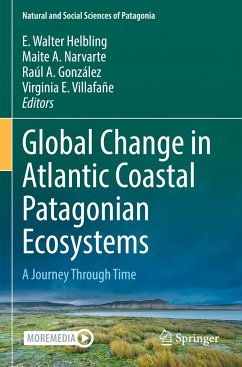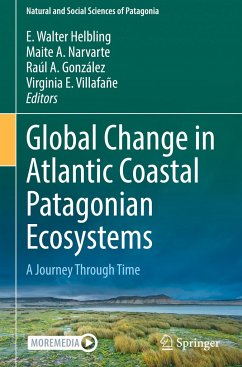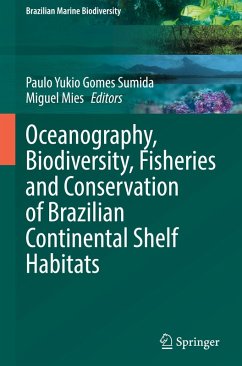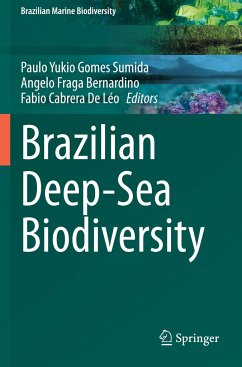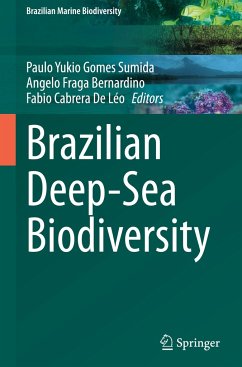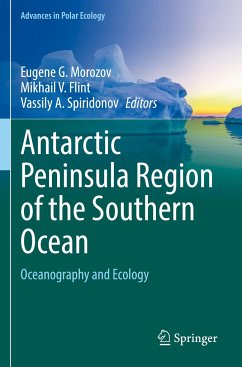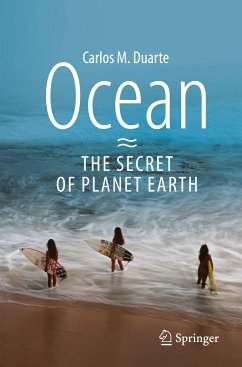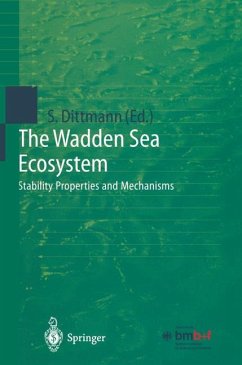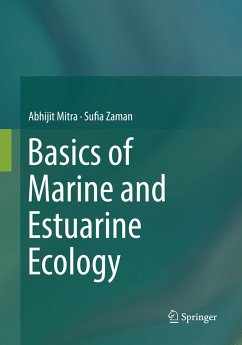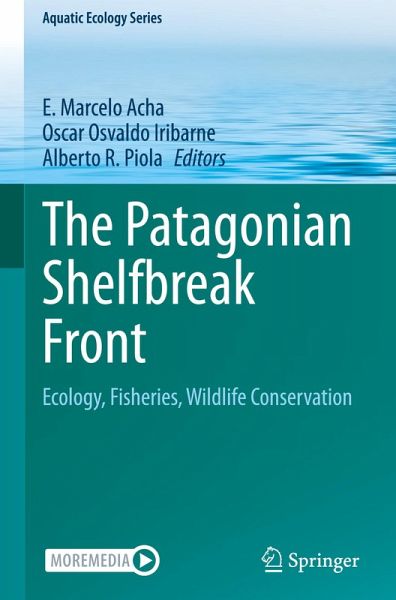
The Patagonian Shelfbreak Front
Ecology, Fisheries, Wildlife Conservation
Herausgegeben: Acha, E. Marcelo; Iribarne, Oscar Osvaldo; Piola, Alberto

PAYBACK Punkte
61 °P sammeln!
This book provides a compilation of basic information on the topic of the Patagonian Shelfbreak front, but integrally reanalyzes this under modern paradigms. The book provides a synthesis of the ecosystem characteristics, encompassing physical and chemical oceanography, plankton, nekton and benthos communities, fisheries and conservation issues. It provides hypothesis to guide future research, and recommendations for policymakers and stakeholders.Fronts play key roles in marine ecosystems, and shelfbreak fronts are ubiquitous elsewhere in the world ocean, broadening the interest of our proposa...
This book provides a compilation of basic information on the topic of the Patagonian Shelfbreak front, but integrally reanalyzes this under modern paradigms. The book provides a synthesis of the ecosystem characteristics, encompassing physical and chemical oceanography, plankton, nekton and benthos communities, fisheries and conservation issues. It provides hypothesis to guide future research, and recommendations for policymakers and stakeholders.
Fronts play key roles in marine ecosystems, and shelfbreak fronts are ubiquitous elsewhere in the world ocean, broadening the interest of our proposal. The Patagonian shelfbreak front is a hot spot of marine life, with several associated fisheries and intensive use by marine birds and mammals.
This book will contribute to fill the information gap of the Southwestern Atlantic, a region where there is a growing interest in terms of conservation and management actions. Its primary audience are researchers and postgraduate students, being also relevant for conservation scientists and resource managers.
Fronts play key roles in marine ecosystems, and shelfbreak fronts are ubiquitous elsewhere in the world ocean, broadening the interest of our proposal. The Patagonian shelfbreak front is a hot spot of marine life, with several associated fisheries and intensive use by marine birds and mammals.
This book will contribute to fill the information gap of the Southwestern Atlantic, a region where there is a growing interest in terms of conservation and management actions. Its primary audience are researchers and postgraduate students, being also relevant for conservation scientists and resource managers.



